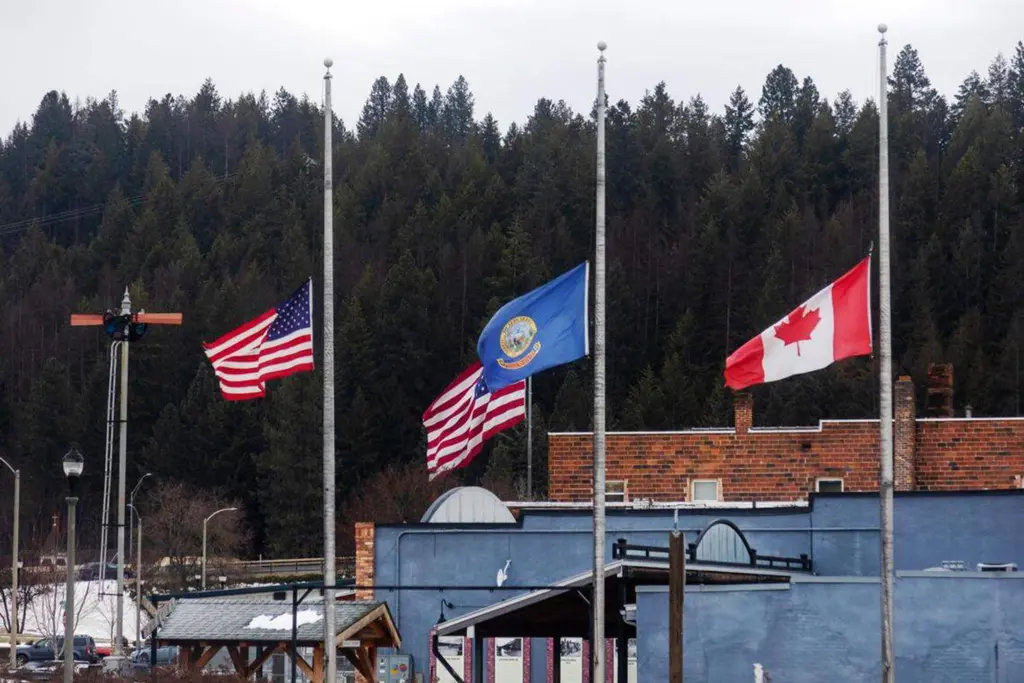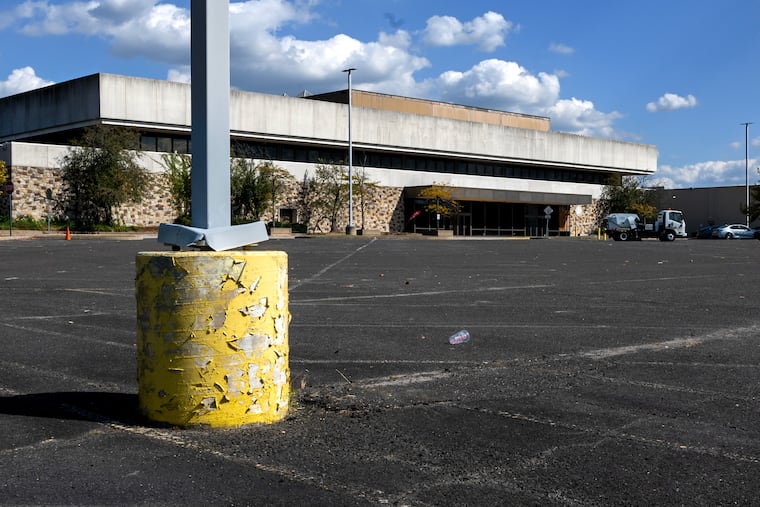Copyright Hartford Courant

By Sarah Cutler, The Idaho Statesman BOISE, Idaho — Bonners Ferry, a small town on Idaho’s northern border, has long had strong bonds with Canada. When the city installed flag poles at its town entrance in the 1980s, it designated one of the three to permanently hold a Canadian flag, Mayor Rick Alonzo told the Idaho Statesman. And when the Idaho Legislature this year passed a law banning cities from flying “unofficial” flags, Bonners Ferry took down its Canadian flag for only about a week before its City Council voted to implement a year-round “special occasion” recognizing the city’s friendship with Canada, circumventing the state law. The flag’s been back up ever since. But in recent months, the love hasn’t been going both ways. Amid tension between Canada and the U.S. over tariffs and President Donald Trump’s repeated suggestions that Canada should become the U.S.’s 51st state, the number of Canadian visitors to Bonners Ferry is down 35% this year, Alonzo said. The city’s economy has taken a hit: Business at the grocery stores, which Canadians frequent when they visit, is down 20%. Golf courses in the area have seen “hardly any” Canadian customers, he told the Statesman. Bonners Ferry isn’t alone. The number of Canadians traveling by car into Idaho dropped about 30% in September, compared with the same month last year, according to the U.S. Bureau of Transportation Statistics. Nationwide, the number of Canadians entering the U.S. this year had dropped nearly 40% in July, compared with the same month in 2024, according to a report published by Statistics Canada. The drop in visitors was so stark that Coeur d’Alene’s visitors bureau decided to stop advertising its city in Canada. The bureau typically advertises in southern British Columbia, Calgary and Vancouver, said Mark Robitaille, its executive director. But after receiving negative feedback from some Canadians to its ads this spring, the bureau decided to put advertising on hold until tensions thawed. “I try to be a good steward of our marketing budget,” Robitaille said. “So I paused our advertising at this point based on the fact that they are not entirely happy with us.” It’s hard to say what the drop in tourism means for Idaho’s economy as a whole. Visit Idaho, the tourism arm of Idaho’s Department of Commerce, does not publish reporting related to international travelers, said Michael Cullen, a spokesperson for that office. The Department of Commerce also doesn’t track visitor data from Canada, said Cody Allred, a spokesperson for the department. Drop in Canadian tourism ‘takes a chunk’ out of local business But for businesses like Silverwood Theme Park near Coeur d’Alene, the dropoff is something “we are definitely cognizant of,” said Jordan Carter, the park’s director of marketing and entertainment. The park has seen tickets purchased by Canadians this year drop by half. Though Canadians make up only about 10% of the park’s usual customers, their absence still “takes a chunk” out of their business, Robitaille said. In Sandpoint, meanwhile, business this summer was down about 10% on average, though there was no way to tie that directly to Canadian tourism, said Mickey Quinn, the grant administrator for the city’s Chamber of Commerce. Anecdotally, she said, the city’s restaurants, bars and shops noticed a drop in Canadian traffic early in the summer. Some Canadians who chose not to make the trip reached out by phone or email to make their reasons clear, Quinn said. Many, according to that correspondence, were turned off by Trump’s remarks about how Canada should be the 51st state. “Our message to them, whenever we had that dialogue, was like, ‘We’re so sorry you feel that way. We love your business. We love having you come and visit,’” Quinn said. “And, ‘Please, don’t let something that’s happening far away from us affect your trips and your plans.’ ” Robles, in Bonners Ferry, said she’d heard that many Canadians were afraid to visit the U.S. because of stricter immigration enforcement, and a sense amid political tension that they may be treated poorly by Americans. Those sentiments echo an August study conducted by Longwoods International, a tourism research firm, of Canadian travelers. That study found that over 60% of Canadian travelers were less likely to visit the U.S. because of the country’s politics — largely because of tariffs and political statements by American leaders. Robles and Quinn both expressed optimism that the tourism would pick up again soon, and that they would soon see their northern visitors return. Some businesses, including hotels, are seeing business pick back up already, Robles said. Canadians are “just taking a pause right now,” Quinn said. _____ ©2025 The Idaho Statesman. Visit idahostatesman.com. Distributed by Tribune Content Agency, LLC.



